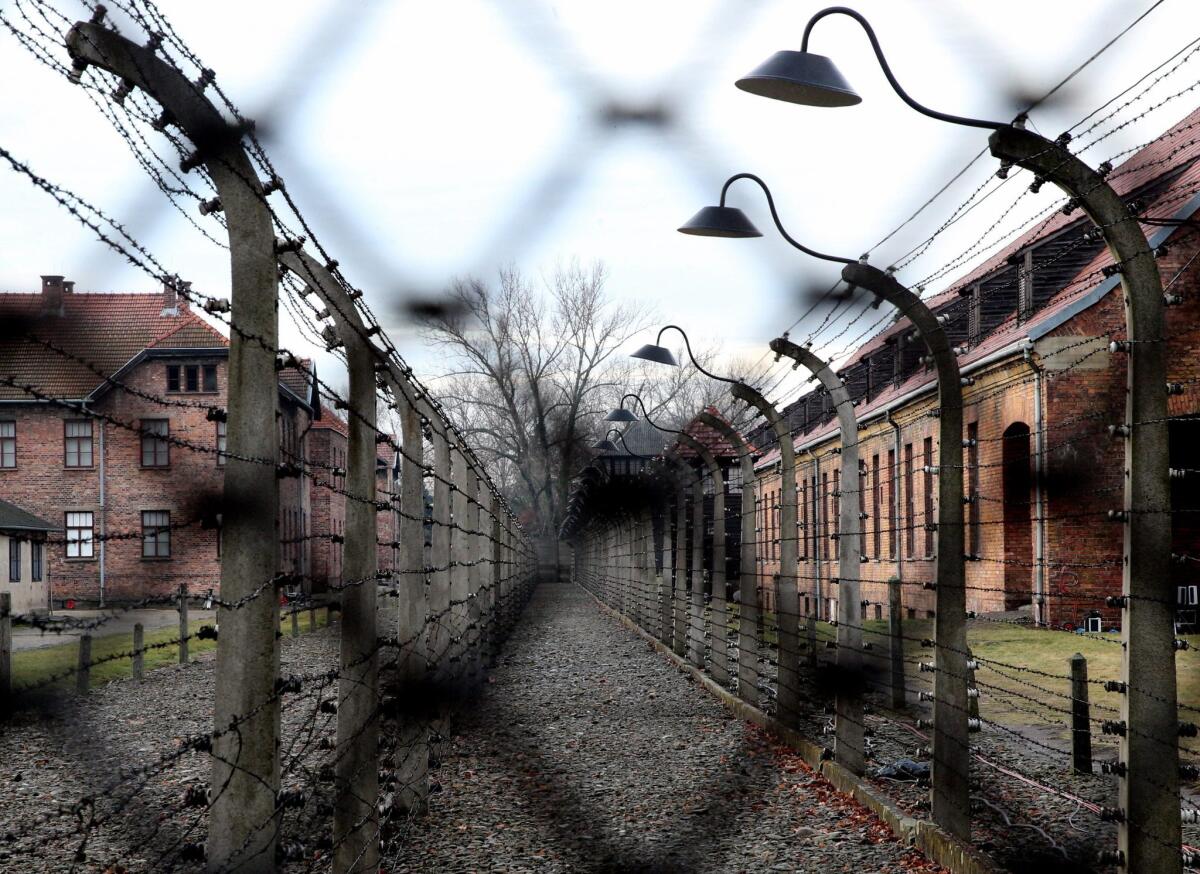Letters to the Editor: America has concentration camps on its border? That’s absurd and ahistorical

- Share via
To the editor: I write as a refugee from Hitler who, at age 6, fled Vienna with her family, on March 12, 1938, the day of Hitler’s annexation of Austria, so as to avoid being taken to a concentration camp. We lost everything but at least we were alive. (“I’m Jewish and I don’t say this lightly: ‘Never again’ is right now in America,” Opinion, July 26)
The parallel today would be this: If right now, on this very day, op-ed article writer David Ulin’s doorbell rang and he, a citizen of the United States, would suddenly be arrested for no reason whatsoever except that the government found out he was Jewish and sent the police to pick him up and [take] him to a concentration camp, where he would eventually be killed. Or if someone came to Rep. Alexandria Ocasio-Cortez’s (D-N.Y.) home and arrested her because she happened to be Latina.
Events like these actually took place — they were not hypotheticals. The situation at the border is entirely different: People who are not citizens and were warned not to make the trip have been detained. That doesn’t justify the conditions at the detention centers, but Ocasio-Cortez’s analogy is simply absurd.
She obviously has no idea of the history of Nazi Germany, but Ulin should know better.
Marjorie Perloff, Pacific Palisades
..
To the editor: When I was growing up in New Jersey, my parents, German-Jewish refugees, told me that as young adults they observed the growing Nazi movement.
They heard both Jews and Gentiles say that they do not need to worry, this won’t go anywhere, it’s just noise. The Germans are too educated, too cultured, for anything very bad to happen.
As things got worse, my parents decided to flee; they weren’t taking any chances. My grandparents stayed. The thinking was that if things got even worse, it wouldn’t affect the old people. Why would anyone want to hurt them?
My grandmother was arrested for being Jewish, transported by train from her village in Germany to Nazi-occupied Soviet Union and murdered in the Minsk concentration camp.
Americans have this long tradition of tolerance, equality, liberty and justice for all. We welcome immigrants and refugees. It can’t happen here.
Stephen Seiferheld, Los Angeles
..
To the editor: It would be nice if we could call out the “concentration camp” narrative for what it really is: An easy way to shut down any sort of sensible debate on the topic.
Think about it: If the detention centers are indeed “concentration camps,” as Ulin and Ocasio-Cortez are saying, then how could it be possible for someone with any shred of moral conscience not to call for the immediate release of all detainees?
I wish I lived in a time where we could still have rational debates about complex issues.
Ryan Falk, Pasadena
..
To the editor: “‘Never again’ is right now in America” is something I have been saying for a long time.
Racists, white supremacists and anti-Semites have taken the presidency of Donald Trump as a validation. Hate crimes are increasing, and there is no doubt about the correlation. This is not the Holocaust of 1944, but perhaps we are where Germany was in 1931 or 1932.
I wish I could ask my late father about what it felt like in Nazi Germany in the early stages. Perhaps the biggest difference now is the many people who have seen this coming and have been pushing back. The surprising thing is that so many of Trump’s supporters simply turn a blind eye.
They give him a pass on endless lying, corruption and immorality; the horrible treatment of children at the border; and his fight to degrade our environment, among other offenses. Conservatives justify their support for him despite huge deficits by citing his tax cut; some members of the Jewish community give him a pass because he moved the U.S. embassy in Israel to Jerusalem; and devout Christians who object to his immoral behavior cite his opposition to abortion.
I might not agree with her on every issue, but when Trump told American-born Rep. Alexandria Ocasio-Cortez (D-N.Y.) to go back where she came from, the hairs on the back of my neck stood up. Note that Trump isn’t calling for me to go back to Germany, from where my father fled for his life in 1939. Yet.
I encourage everyone to read German theologian Martin Niemoller’s poem, “First they came.” Is there any doubt what Niemoller would say now?
Paul Koretz, Los Angeles
The writer is a member of the Los Angeles City Council.
More to Read
A cure for the common opinion
Get thought-provoking perspectives with our weekly newsletter.
You may occasionally receive promotional content from the Los Angeles Times.










